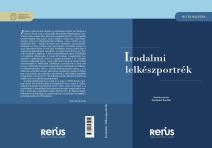Our Father, Abraham: A Father- and Pastor-Shaped Hole in András Visky’s Novel Deportation
Synopsis
One of the central elements of András Visky’s novel Kitelepítés [Deportation] is the father’s character. Although imprisoned for a significant part of the story, he is still present through his absence, as the ultimate goal of every action within the family is to be reunited with him. To the narrator, this is a particularly important, identity-forming relationship, as András, the youngest of seven kids, was only two years old at the time of the deportation and had no memories of his father. For him, the anticipated reunion would prove that he, just like his siblings, does have a father, and that he would recognize him, even though he has no idea of his appearance.
This study analyzes the father’s character in detail, who is initially constructed in the imagination of the youngest child in the novel but later becomes a real person. Beginning with an examination of his father’s love for his mother – not merely emotional, but physical as well –, continuing with comparisons to biblical characters – including Abraham, Job, Jonah, the prophet Isaiah, and even God himself – all the way to a presentation of his work as a pastor. In my analysis, I attempt to highlight several aspects of an unusual pastor portrayed in the novel Deportation, thereby offering a new interpretation of András Visky’s highly successful book.






